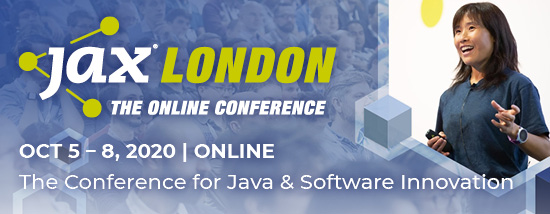A research study by The National Center for Women & Information Technology showed that “gender diversity has specific benefits in technology settings,” which could explain why tech companies have started to invest in initiatives that aim to boost the number of female applicants, recruit them in a more effective way, retain them for longer, and give them the opportunity to advance. But is it enough?
Two years ago, we launched a diversity series aimed at bringing the most inspirational and powerful women in the tech scene to your attention. Today, we’d like you to meet Shuchi Gaur, engineer at Peritus.
Today’s Women in Tech: Shuchi Gaur, engineer at Peritus
 Shuchi Gaur has around 17 years of experience managing and executing projects in information management and e-commerce for major financial institutions. She spent almost 15 years at Infosys, where she worked with clients in investment banking, consumer and small business banking and banking risk and compliance.
Shuchi Gaur has around 17 years of experience managing and executing projects in information management and e-commerce for major financial institutions. She spent almost 15 years at Infosys, where she worked with clients in investment banking, consumer and small business banking and banking risk and compliance.
At Peritus, she is driving the company’s development of a cloud-based recommendation engine that provides technical advice for DevOps and application developers.
When did you become interested in technology?
As far as I can remember, I have had this thirst to know how things worked. So, I was always going to study science. I gravitated towards computers when I took my first class at 10 years of age. That was when I discovered the sense of relish one gets out of one’s creation – a small computer program in my case – working as designed. On a more prosaic note, I learned that I could build things, instead of just studying them. I liked that.
How did you end up in your career path?
I come from a progressive and academically inclined family. Specifically, my father is an electrical engineer and my mother is a trained teacher, who became a homemaker to focus on our family. When I was growing up, my only job was to do well in my studies. Despite all that, I was not ambitious. I was happy to just savor the knowledge I was acquiring. It was truly my parents who propelled me into technology. My mother said to me once that I had the talent and the opportunity to make something of myself and that I owe it to those who were not that fortunate – at the very least, I could increase the number of female engineers in the world by one. That resonated with me.
So, I earned an engineering degree and joined Infosys. I learned a lot there, two of the major lessons being that I loved coding more than anything else about my job and that once I reached the point where I could do something with my eyes closed, I got bored. After about a decade and a half, I decided to take a step back and quit. A chance encounter brought me into Peritus’ orbit. I interviewed with them and really liked the team. Fortunately, the feeling was mutual and here I am.
That said, it was not all smooth sailing. During the years, I have worked with a lot of great and supportive people, some not so much. On more than one occasion, I have been advised to keep my head down, patronized by male managers or colleagues, and even, gaslighted, all on account of being a woman and thereby, considered weak and an easy target. The first time it happened, it felt like a slap on the face. Then, I recalibrated my view of the world and moved on. My family and friends heard a lot of my rants when I was working through this.
Did you receive support from your family and friends?
I have had tremendous support from my family. My parents and my brother are my role models. I am what I am because of them. My friends also have always been there for me. Together, they are my biggest fans and strictest critiques. They are there when I feel the need to vent my frustration or gush about something well done. I could not ask for more.
Did someone ever try to stop you from learning and advancing in your professional life?
There have been instances where people have given me overly harsh reviews to discourage me from looking for better opportunities. The worrisome part is that most of them did not believe that they were being discriminatory or prejudiced. Once, a colleague worked behind my back to oust me from my position because he wanted it. It was not personal for him, just business. I began by initially ignoring such things, moved on to reacting to it, and then on to choosing my battles. I am still learning the last part.
Anyway, those experiences also taught me a lot about professional life. I cannot always assume that I will have support, and even if I do, I can’t let it turn into a crutch.
The more women there are in an industry, the more commonplace their sightings, so to speak.
A day in Shuchi’s day
At Peritus, we have developed a cloud-based recommendation engine that provides technical advice for DevOps and application developers. Our goal is to transform community forums such as Stack Overflow from best effort to a best-in-class support experience by empowering community users to find and answer questions faster. My team at Peritus.ai is a close-knit one. We are all involved in the design and development of our products. We have our designated responsibilities. But, as a true engineering team, we pitch in wherever we are needed.
My typical workday is a mix of collaborative sessions with other members of the team and solo time spent coding.
What are you most proud of in your career?
At least some people know and remember me by my work, not by my gender or how I look.
Why aren’t there more women in tech?
There are a lot of factors contributing to that. There is still a school of thought that science is not for women. Women from families with such ideology are not likely to get the required start in life. Also, a lot of women who start out in tech leave after a few years to focus on their families. Taking care of the household and family has traditionally been a woman’s job and after a while, it becomes exhausting to juggle it with a demanding career. More often than not, women with a hectic job do not get as much support from their families as a man would.
Could you name a few challenges (or obstacles) women in tech face?
Women have to be twice as good to get half as far as their male counterparts. And, they still get patronized. If they succeed, it is considered to be despite the fact that they are a woman. If they fail, it is expected of them for the same reason. If they are too assertive – a quality which is considered admirable in a man – they get tagged as overly aggressive.
Moreover, women get judged upon for their looks a lot more than men. Nobody would question a man’s technical skills if he is well dressed, but quite a few would do that to a woman. Some of these are mere annoyances. But they add up.
Would our world be different if more women worked in STEM?
First and foremost, it will mean more role models for others to follow.
Secondly, the more women there are in an industry, the more commonplace their sightings, so to speak. This means that they stop being anomalies and hence, under a microscope all the time. They can focus on their jobs rather than investing half their energy in optics, which means a higher chance of success. When people see a lot of women managing well in the industry, they are more likely to support the ones in their orbit in their aspirations.
To my team, I am an engineer. My gender is immaterial. Every team or organization that can take that approach is taking us one step closer to the ideal.
The discussion about diversity is gaining momentum. How long will it take to see results from the current debate?
If it is a debate, then it is for its own sake. Diversity is the natural order of things. Any system with limited variety becomes stagnant.
The good news is that most organizations are making an effort to ensure that they have a mixed workforce. The bad news is that such changes take time.
To my team, I am an engineer. My gender is immaterial. Every team or organization that can take that approach is taking us one step closer to the ideal.
What advice (and tips) would you give to women who want a tech career?
Be ready to work hard. Do not get discouraged if your efforts are thwarted. Be prepared that sometimes the discrimination might come veiled as a misguided attempt at ‘good advice’. Choose your battles – it is not your job to enlighten the whole world – you can do it more efficiently by succeeding. Cherish those who support you more than worrying about those who do not. Finally, watch out against developing biases of your own.
More Women in Tech:
- Women in Tech: Emilie Gieler, Vice President of Platform & UX at Akeneo
- Women in Tech: Shani Gale, Director of Product Management at Snyk
- Women in Tech: Marie Godfrey, SVP of Products at Flexera
- Women in Tech: Hiral Patel, Founding engineer at Diamanti
- Women in Tech: Christin Matt, Senior Game Designer
For even more Women in Tech, click here
The post Women in Tech: “Diversity is the natural order of things.” appeared first on JAXenter.
Source : JAXenter
























